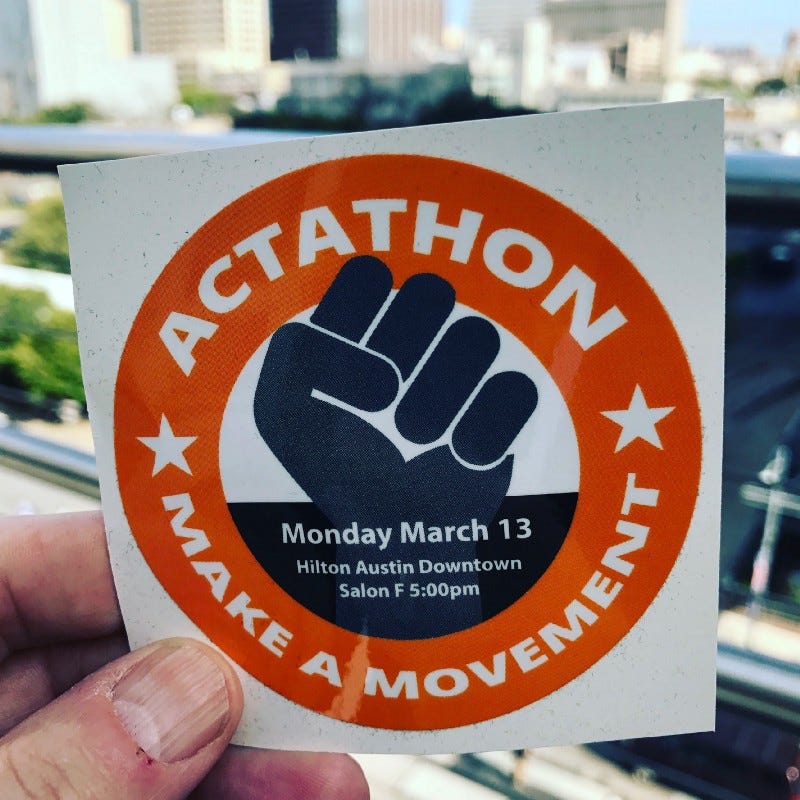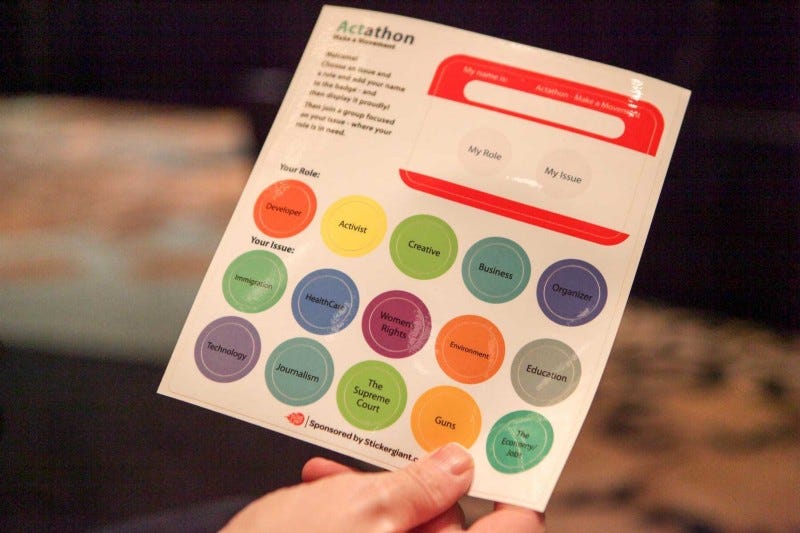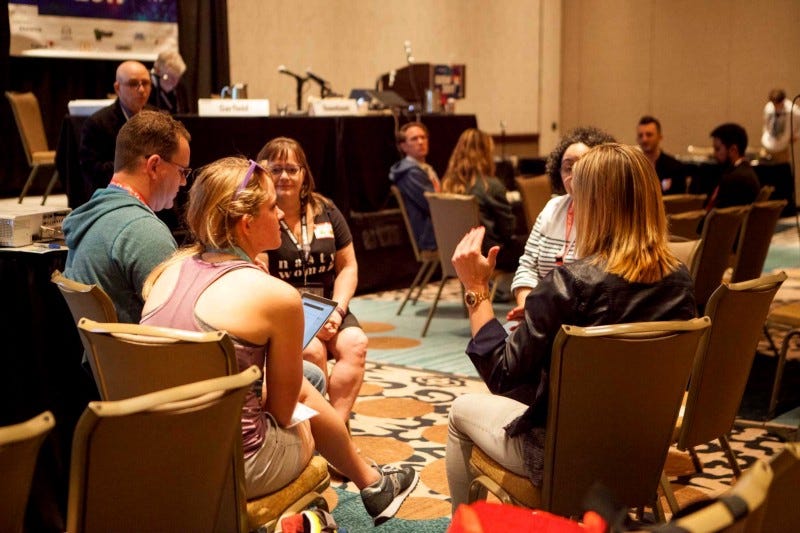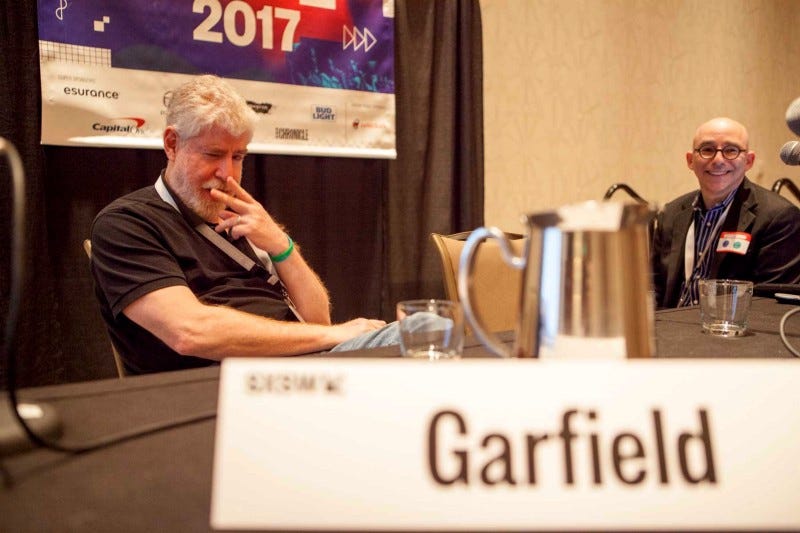Turning Passion Into Action — SXSW 2017
The state of politics in our nation has people paying attention. And that’s a good thing. But the volume of information — the sheer…
The state of politics in our nation has people paying attention. And that’s a good thing. But the volume of information — the sheer velocity of it — has left even the most engaged with a sense that there’s simply no way to focus.
So this year at SXSW we tried an experiment. Working off the concept of a hackathon, we wanted to bring together groups of people with unique skill sets, and then break them up into teams to pick a problem and then work on a roadmap to a solution.
We called it an Act-a-thon, and to make it work, we brought together a unique group of players and participants.
Bob Garfield from Public Radio’s “On The Media” program agreed to kick off the event with a framework. And with his trademark brand of carefully crafted language — he set the group up to face big problems, and the challenged them to solve them, and quickly.
First of all, thank you all for being here. Thank you for not living life as a spectator. And since you’re all here, I don’t suppose I have to light a fire under you. But just let me speak for 2 minutes about something glorious. This here, this is a beauty. The First Amendment to the Constitution, 45 words that define the core of American Democracy. This is the marquee language, the top of the charts in the civil liberties hit parade. It is also what most concerns all of us at On the Media, because, duh. Without the constitutionally guaranteed freedom of expression…and Woodward and Bernstein might still be police reporters.
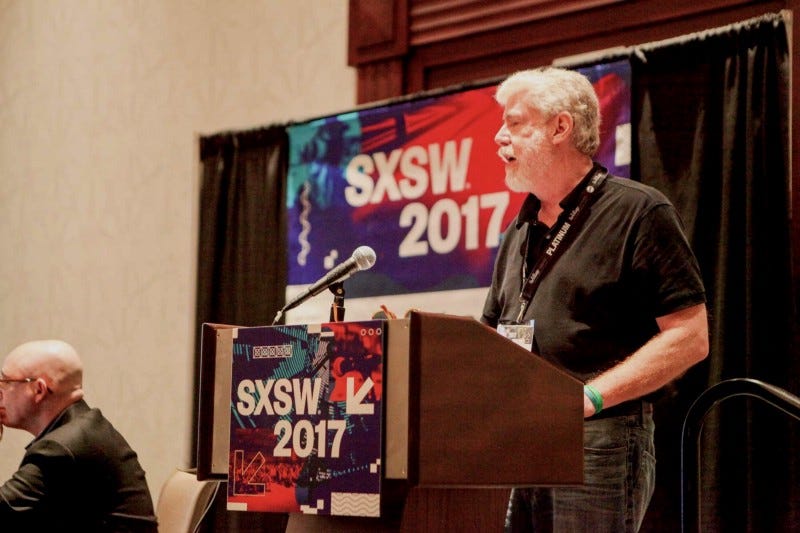
But, the thing is, a free press is not the end-all, be-all of the First Amendment. Permit me to call your attention to the rest of it. There’s an old warning to politicians that you should never pick a fight with someone who buys ink by the barrel. True enough. But it’s equally good advice not to pick a fight when you are hopelessly outnumbered….and in every aspect of policy for which government tramples on the commonwealth and the common will of the people, outnumbered is a possibility.
We have 300 million people in this country. That is a lot of potential energy — and sometimes it becomes kinetic energy in the most astonishing ways. Being heard matters. Being counted matters. Letters to members of Congress matter.
The Act-a-Thon is an exercise in making yourself heard about whatever it is that hurts your heart or just pisses you off. This takes passion, of course, but also creativity, resourcefulness and organization. I can think of any number of problems that demand attention, but I’ll bet you don’t need any suggestions. I wish you luck. Please, ladies and gentlemen, make noise at scale.
The hour-long session was broken up in 10-minute pods of activity — and teams that had unique skills and abilities.
And so our groups divided up into the issues that had the most votes — as measured by stickers chosen. And then for a frothy forty minutes they explored, shared opinion and ideas, and galvanized into ideas.
The two groups chose their issues and outlined their ideas. Group One was made up of a mix including Erica from Chicago, a developer, RC from Austin, also a Dev, Mandy from LA (a creative) Heather from Vancouver, also a creative, and Leah from Colorado, an activist. They chose education and defined their issue this way: “There’s a policy problem — rules that are more easily violated by non-white children. But also there is a ‘people problem’ as teachers could have hidden biases.”
Then, came a proposed solution: “Could we have a higher standard for the day care (e.g. head start) certifying that teachers are given tools to address hidden, even unknown biases). To address the School to Prison Pipeline, the group proposed “continuing education credits around sensitivity training for the school to prison pipeline, unconscious bias training.”
Group Two took a different tact and a different issue. Rebbeca was the team leader. Amanda was a creative from LA. David was a technologist. There was a Brazilian economist and a German Journalist. The category they took on was Technology, and quickly they found the issue they wanted to tackle was diversity in tech. After brainstorming and narrowing the issue — they’re proposed “setting up an ambassador programs for those in tech (coding, UX) to mentor/teach/take six-month sabbatical to teach.” They went further suggesting: “the Initiative can be embedded in a local community, we chose to focus on racial diversity, can also apply to diversity across the board: economic, women, rural/urban, nonscientists, etc.”
So, what do we make of these civic actions? A few things. First, keep in mind these are groups of strangers, who met for the first time at SXSW. They come from divergent backgrounds, skills, and regions. The only thing they had in common was the idea that they wanted to meet, content with others, and act. The other thing that’s interesting is that despite the somewhat political nature of the event — the issues that were tackled and the solutions proposed were not political — not a bit.
So, the Act-A-Thon experiment turns out to have had some pretty interesting results. People do want to act, and people do want to work with their peers across lines of skills and abilities. Will the SXSW members remain connected, and active — it’s probably too small a sample to know either way. But the energy and power of civic activism is alive and well — in Austin and beyond.
Check out the whole Act-A-Thon deck HERE




